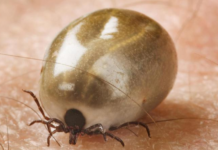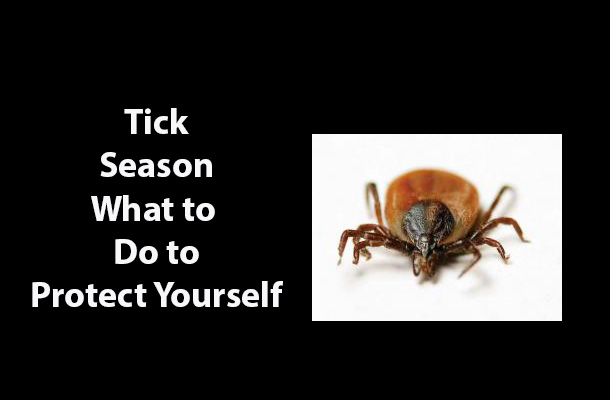Thunder Bay – HEALTH – The Thunder Bay District Health Unit (TBDHU) is reporting that 62.5 percent of black-legged ticks (BLTs, formerly known as deer ticks) collected via active surveillance this year have tested positive for the Lyme disease bacteria, Borrelia burgdorferi.
This is a significant increase in comparison to previous years where approximately 10 percent of BLTs tested positive for Borrelia.
Lyme disease is a serious illness that affects the central nervous system, the cardiovascular system and the joints. In approximately 50-80 percent of cases, a circular rash known as erythema migrans (EM), commonly known as a “bulls-eye rash” will develop which can vary in shape and size. Other symptoms may include fatigue, chills, fever, headache, muscle and joint pain, and swollen lymph nodes. These symptoms typically occur 3-30 days after a BLT has fed for greater than 24 hours; however, many people remain asymptomatic.
The City of Thunder Bay and immediately surrounding areas is an endemic area for Lyme disease; therefore, vigilance is necessary whenever walking through brush or tall grass. The Rabbit Mountain lookout trails, located off Belrose Road, continue to be a “hotspot” for Borrelia-positive BLTs.
When planning an outdoor activity, keep the following in mind:
- Wear long sleeves and tuck your pants into your socks;
- Wear light coloured clothing, making it easier to see a tick;
- Insect repellents that contain DEET or lcardin provide protection against ticks
- Perform a tick check, this includes checking your hairline, underarms, stomach and groin for ticks.
For more information and photos to aid in identification, as well as instructions on how to remove an attached tick please visit the Thunder Bay Health Unit District Website.
If you believe you have found a BLT, or are unsure of the identity of the tick, please submit it to the health unit for identification.
The health unit cannot test submitted ticks for Lyme disease. You should assume that all BLTs are infected. If you find a BLT attached to your body, speak to a health care provider. Lyme disease is debilitating when left untreated, but can be cured by early administration of antibiotics.





